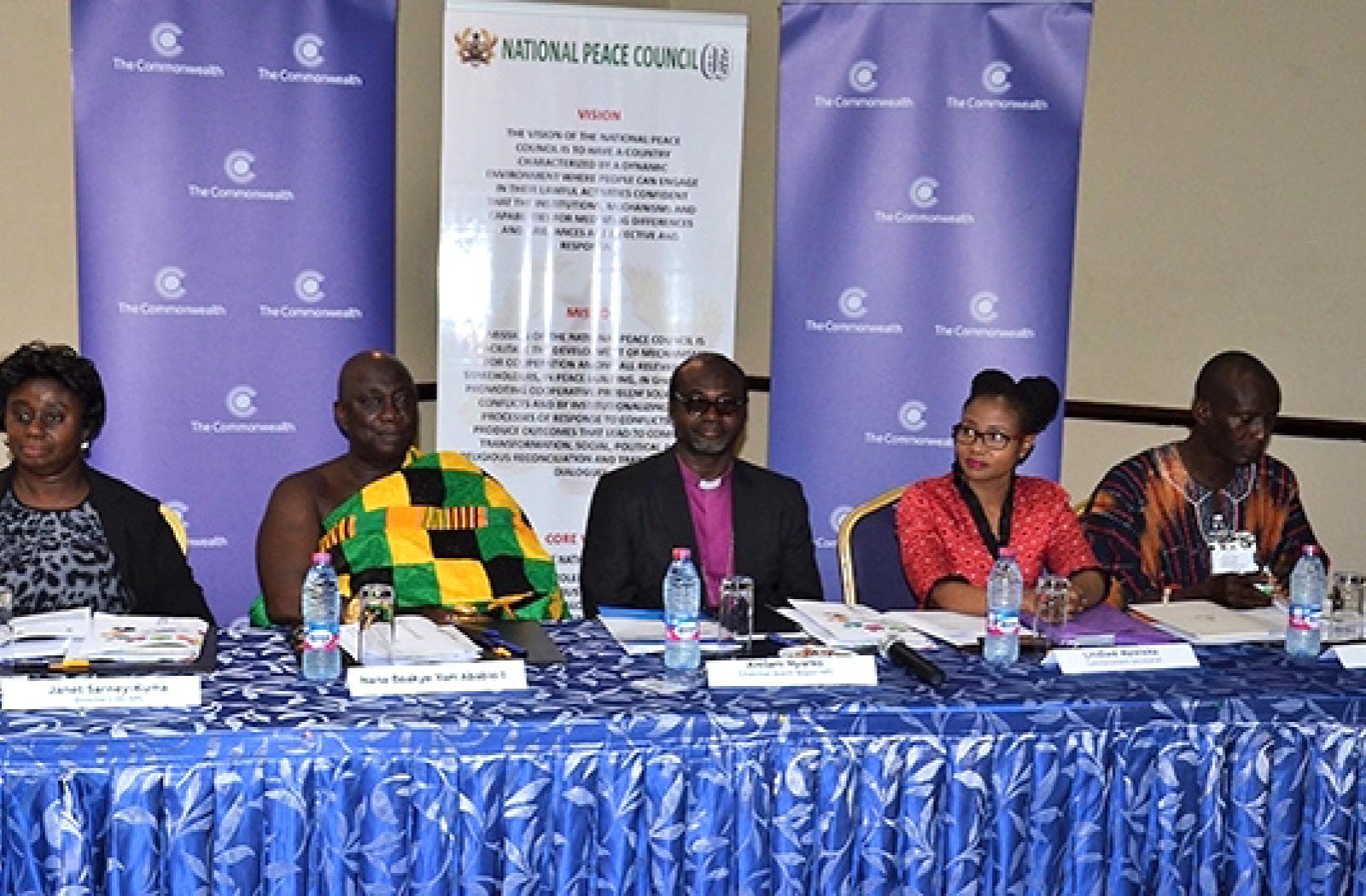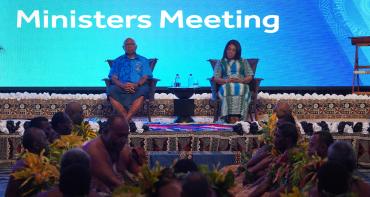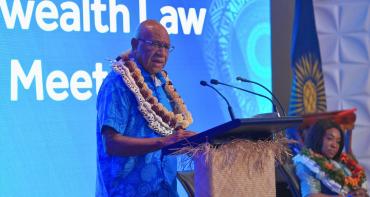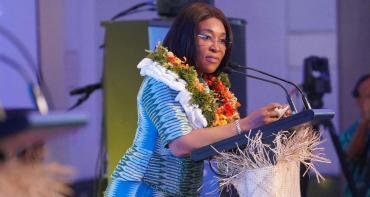The Commonwealth has continued efforts to strengthen conflict prevention mechanisms in Ghana by convening a three-day workshop. The event in Kumasi, from 24 to 26 June, is designed to address the root causes of violence by strengthening local capacities and promoting the use of effective dialogue and advocacy in containing impending threats.

The Commonwealth has continued efforts to strengthen conflict prevention mechanisms in Ghana by convening a three-day workshop.
The event in Kumasi, from 24 to 26 June, is designed to address the root causes of violence by strengthening local capacities and promoting the use of effective dialogue and advocacy in containing impending threats.
The project aims to advance the Commonwealth’s integrated approach of combining conflict prevention with election observation ahead of the 2020 Ghana general elections.
In his opening remarks, Bishop Christopher Nyarko Andam, board chairman for the Ashanti Regional Peace Council thanked the Commonwealth and the National Peace Council for the initiative.
He said: “Conflict is inevitable in every society. In our daily interactions as we seek to further our interests, conflicts are bound to occur.
“The outcome is always destructive but it also brings social change. However, the most important thing is to put in place mechanisms and peace infrastructures to manage such conflicts when they arise to prevent them from escalating into violence.
“Therefore, the essence of this collaboration between National Peace Council and Commonwealth Secretariat is to train participants on these mechanisms”
The Commonwealth’s Lindiwe Maleleka added: “The Commonwealth Secretariat considers that peace and stability within political spheres and electoral landscapes in member states is critical to deepening democracy, fostering good governance and sustainable development.
“Dialogue and peacebuilding are thus at the heart of the support we provide across the Commonwealth through preventive diplomacy, election observation, the strengthening of human rights and rule of law and good governance.”
Participants include board members of the Peace Council, Members of the Peace Council Secretariat, traditional leaders, political parties, Civil Society Organisations, women and youth leaders.
Last week, a two-day workshop for the region was attended by Cameroon, Gambia, Ghana, Nigeria, Sierra Leone and Jamaica. The countries shared experiences and good practices in building, strengthening and sustaining dialogue structures.



